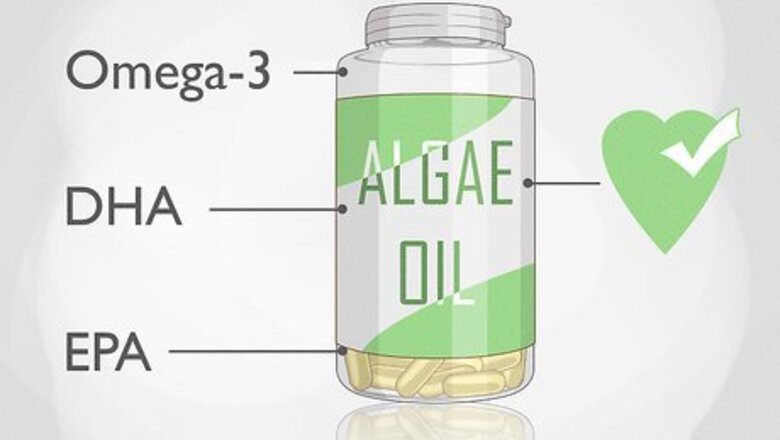
views
Why Take Algae Oil?
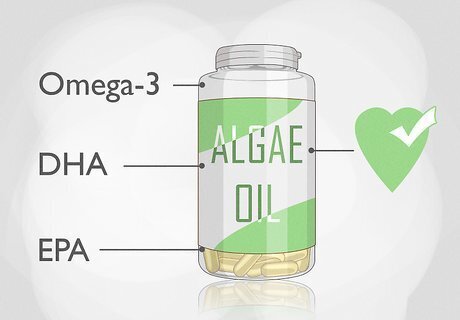
Use algae oil to support your heart health. Algae oil is full of omega-3 fatty acids, particularly eicosapentaenoic acid (EPA) and docosahexaenoic acid (DHA). These fatty acids are super heart-healthy and can reduce your risk of heart disease, including high blood pressure, stroke, and arrhythmias. Algae oil also contains alpha-linolenic acid, or ALA, which also improves heart health.

Try algae oil as a natural way to improve your mood. Research shows that people with low levels of DHA and EPA are more likely to suffer from depression. While it’s not crystal clear that the cause of depression is due to a lower intake of omega-3s, increasing your intake may improve your mood. There’s no harm in trying it out for yourself!
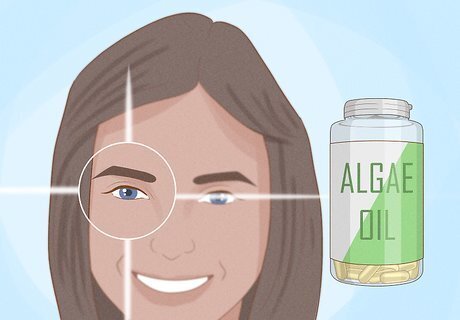
Take algae oil to boost the health of your eyes. If you suffer from dry eyes or irritation, increasing your intake of omega-3s could lessen your symptoms. Additionally, it could even delay the onset of macular degeneration.

Reduce inflammation with algae oil. EPA and DHA can minimize the amount of inflammation in your body. If you have rheumatoid arthritis or atherosclerotic plaques, increasing your omega-3 intake could reduce your symptoms. Similarly, algae oil can help with asthma.
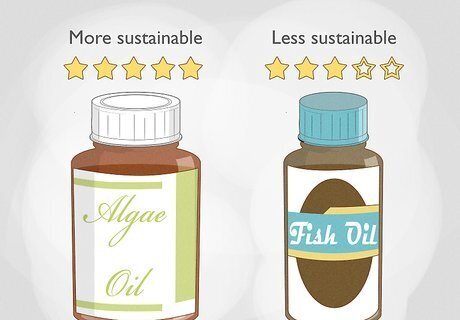
Choose algae oil for a more sustainable option than fish oil. While fish and fish oil supplements are full of omega-3s, overfishing has contributed to a decline in availability. Algae, on the other hand, contains higher levels of omega-3s, is easy to grow, and the harvesting time is shorter, making it more sustainable and environmentally-friendly. Fatty fish like salmon are full of omega-3s is because they eat algae! Plus, fish and fish oil can be contaminated with heavy metals like mercury, while algae are not.
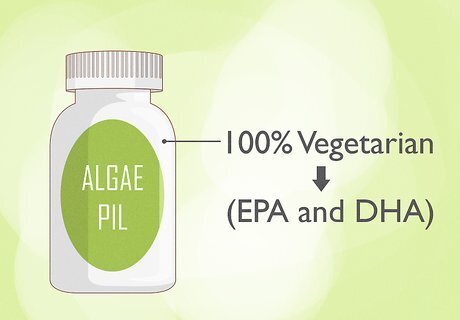
Go with algae oil if you’re looking for a vegetarian source of EPA and DHA. While fish and fish oil are high in omega-3s, they aren’t good options for you if you don’t eat animal products. Algae oil, on the other hand, is made from plants and provides the same health benefits, so it’s a great choice if you eat a vegetarian diet. As a bonus, it doesn’t have that fishy aftertaste that so many people find unappealing and causes fewer digestive side effects.
Taking Algae Oil Supplements
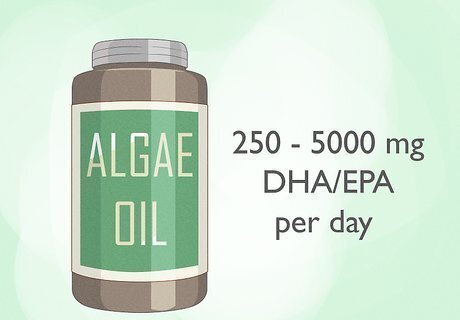
Choose a supplement with at least 250 mg of DHA and EPA. Experts recommend that adults get 250 mg of omega-3s each day. Look for a supplement with at least this many milligrams in each capsule. It’s safe to consume 5,000 mg of DHA and EPA (combined) per day, so you’re unlikely to get too much from a single supplement. Pregnant women may have different omega-3 needs, so speak to your doctor if you’re pregnant and thinking of taking an algae oil supplement.
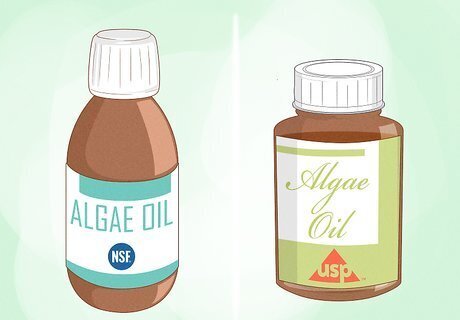
Look for a supplement with a seal of approval. To ensure the manufacturer produces a high-quality supplement, choose a product with a seal from a company like NSF International, U.S. Pharmacopeia, or ConsumerLab.com. Research the manufacturer to make sure they have high purity standards.
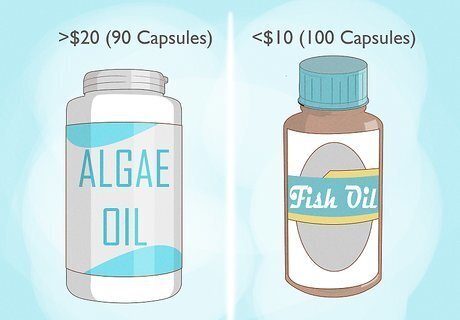
Expect dietary supplements to be pricey. Unfortunately, algae oil supplements are more expensive than traditional omega-3 supplements. Remember that algae oil is more sustainable, though, and comes without the fishy aftertaste or digestive upset that people dislike about fish oil. You might pay upwards of $20 for about 90 capsules, while 100 capsules of fish oil cost less than $10.
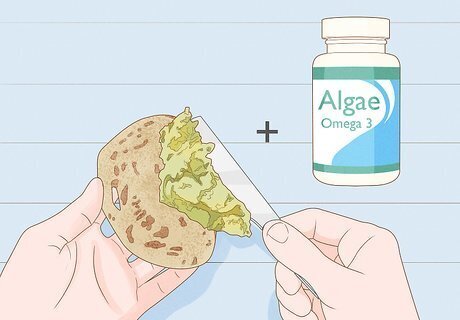
Take algae oil with food. Fat from food helps your body absorb the nutrients in algae oil, so plan to take it when you’re eating a meal that contains fat. For instance, you could take your supplement with some avocado toast for breakfast or at lunch with a peanut butter sandwich. Store algae oil supplements in a cool, dry place.
Cooking with Algae Oil
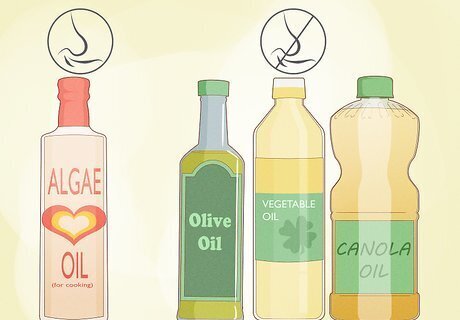
Choose algae oil if you want a flavorless oil. If you’re not a big fan of the taste of olive oil, vegetable oil, canola oil, or other cooking oils, algae oil could be a great option for you. It’s essentially flavorless, so it won’t change the taste of any dish you add it to.

Recognize that algae cooking oil doesn’t contain omega-3s. Omega-3s aren’t heat-stable, so the DHA and EPA are removed from the cooking oil. The oil is still full of healthy fats, though.
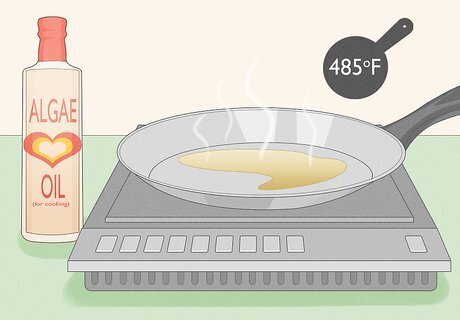
Use algae oil when you’re cooking with high heat. Algae oil has a very high smoke point of 485 °F (252 °C)! That means you can heat it up as high as you need to without worrying about smoke rolling off your pan or out of your oven. It’s perfect for roasting at high heat or sautéing. You can definitely use algae oil for lower-heat cooking, too. Use it in place of traditional oil in your baking recipes or fry an egg in it, for example.

















Comments
0 comment